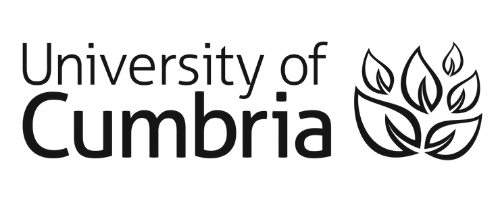Our Members
We currently have 30 members of GuildHE Research
Click on a logo to see more information about the Institution and its research
AECC University College
AECC University College’s facilities include the Chiropractic Clinic, School of Medical Ultrasound with specialist imaging services, and the on-site Bournemouth Open Upright MRI facility. Alumni, research and collaborations span many countries and continents which gives emphasis to AECC University College’s reputation as global leaders in their specialist areas. The University College has a history of innovation and is the sum of all its students, staff and alumni who have shaped and are shaping the fields of health sciences.
The first chiropractic college in Europe, founded in 1965, the AECC University College has a unique history and a proud heritage.
For more details on research visit the AECC University College website
GuildHE Research
Bishop Grosseteste University
Research is important to us at BG for its intrinsic as well as extrinsic value and our Centre for Educational Development and Research (CEDaR) supports research among staff and students across the institution.
Doctoral Study at Bishop Grosseteste
Studying for a doctoral level qualification is one of the most exciting, stimulating and challenging things you can do. BG’s innovative doctoral programmes are designed to empower you as a professional educator to conduct robust research focused on the critical analysis of evidence, pushing back the boundaries of knowledge, developing policy and professional practice, and improving the quality of education as a whole.
Bath Spa University
In 2017, Bath Spa will celebrate 12 years as a university, 70 years of teacher education at Newton Park and over 160 years of teaching.
The University has been named by Which? as one of the top five creative universities in the UK, with around 7,000 students and 1,000 staff. Over 94 per cent of graduates are in work or further study within six months of graduating, and many are successful freelancers, entrepreneurs or are employed in different companies across many sectors.
For further information: https://www.bathspa.ac.uk/
Arts University Bournemouth
By promoting the pursuit of innovation and creativity, we encourage opportunities for establishing and sharing best practice in research and foster the development of critical perspectives that have traditionally lain outside discrete disciplines. We encourage the use of reflective teaching and learning practices as part of an interactive relationship with research.
Staff research is supported from within AUB by grants for particular projects and by a Research Fellowship programme offering generous remission from teaching and administration. Researchers are also encouraged to apply for external funding for the full range of research from practice through history and theory.
Buckinghamshire New University
Research at Buckinghamshire New University (Bucks) is focused on the needs of business, commerce and industry as well as the public and voluntary sectors.
Bucks strongly encourage a collaborative approach and have a number of non-profit research centres and institutes which foster close links with industry, the public sector and charitable organisations.
Bucks has a flourishing research degree programme, with opportunities for both full-time and part-time study leading towards MPhil and PhD degrees in a wide range of subject areas.
Research is profiled in the Bucks Knowledge Archive, the online repository for Bucks’ academics’ research output.
Glyndŵr University
Harper Adams University
There is a healthy research environment at Harper Adams, producing some exciting ideas and advances for the land-based sector. Research at Harper Adams is expanding rapidly, with a 51% increase in external funding from 2011 – 2012. HAU has research competence across the entire agri-food chain, offering farm facilities, laboratories, glasshouses, and engineering workshops, and provides links to small and medium sized enterprises within the agri-food sector.
Hartpury College and University Centre
Hartpury is an Associate Faculty of the University of the West of England (UWE) and has been working in partnership with UWE since 1997. It is currently working towards ‘Taught Degree Awarding Powers’ with the aim of awarding its own degrees, potentially from September 2018.
Today it has more than 1500 students working towards foundation degrees, honours degrees and postgraduate qualifications in equine, sport and animal and land studies.
Falmouth University
The University now has nearly 4500 students from foundation level, to PhD. They are drawn from over 100 countries around the world, as well as closer to home with nearly 15% of Falmouth students coming from Cornwall.
They benefit from world-class teaching and state of the art, industry standard facilities. Falmouth University has identified three strategic themes for research: the digital economy, sustainable design and creative, connected communuites. Both through its research and teaching, the university aims to play a major role in the economic regeneration of Cornwall while helping graduates into great jobs.
Leeds Arts University
The University currently delivers postgraduate, undergraduate and further education. The University is a teaching led institution where research including practice-based research is encouraged and supported. Through research, members of staff acquire subject specific expertise, maintain currency with their subject and connect with other academics; all of which feeds into the work with students.
Leeds Trinity University
Leeds Trinity has a rapidly growing research reputation in a number of specific areas of expertise with commitment to an actively forward-thinking programme that innovates the links between teaching and research across the full range of courses.
Mont Rose College
Our main point of contact at Mont Rose College is Dean of Studies, Sayeda Zain
New College of the Humanities
Newman University
The growing research culture at Newman University was recognised through the Research Excellence Framework Exercise (REF) 2014. The REF results indicated that all research outputs from the University were of national or international standards in terms of originality, significance and rigour, with some outputs being classified as world-leading.
Norwich University of the Arts
Research produced by NUA staff, students and collaborators interrogates the contexts in which art, design and media are produced, understood, used, exchanged and sustained, setting out to challenge conventions, provide new insights and develop original applications.
Plymouth College of Art
PCA strongly encourage and support links between research and pedagogy and between research and professional practice, and thinking through making radiates through all communities of practice – fine artists, makers, designers and creative media producers.
Ravensbourne University London
Researchers at Ravensbourne are likely to draw from ethnography, creative methods, action research, textual analysis, and production and audience studies. We are as likely to work with large organisations (Barclays, Marks and Spencer, the Royal Shakespeare Company, the BBC) as with Small to Medium-sized Enterprises who may be more associated with newer economic structures and production ecologies. We are also involved in policy-making and standard-setting.
Rose Bruford College of Theatre and Performance
Royal Agricultural University
The Royal Central School of Speech and Drama
Professor Maria Delgado, Director of Research, introduces Research@Central:
As a constituent College of the University of London, Central supports a dynamic research community of staff and postgraduate research students (PGRS). We have recognised expertise in the areas of acting and actor-training; applied and social theatre; directing, directors, scenography and design; and cultural histories of performance. Crucially, much of this research operates at the intersection with industry and is realised with partners from a range of sectors, including theatres, film bodies, local authorities, NGOs, charities, cultural festivals, and the museum sector.
Visit the The Royal Central School of Speech and Drama website
Solent University
Research clusters and groups
We are keen to encourage colleagues to work collaboratively, perhaps to accelerate development or to address emerging challenges. The diversity of our research clusters and groups underpins a rich array of research at Southampton Solent University. Our activities lead to important developments in key sectors, and our researchers are keen to build relationships with businesses and the community.
St Mary’s University, Twickenham
Research at St Mary’s is valued, encouraged and supported; undertaking research and scholarship is an integral part of academic life here.
Many of our academics have extensive networks and professional groups nationally and overseas, which offer opportunities for collaborative working, joint grant applications and access to a wide range of resources and expertise. We welcome visiting scholars from around the world as part of our research community.
University College of Estate Management
University College of Osteopathy
The University College of Osteopathy is the largest and oldest school of osteopathy in the UK; founded in 1917 it is respected throughout the world for providing high-quality, innovative and modern osteopathic education
For further information visit the College of Osteopathy website
University of Cumbria
The University was created in 2007 and has a strong background in practical disciplines such as those in Health, Education, applied sciences and the Arts.
A sense of place is very important to the University and this influences the research which is undertaken here in terms of the local, national and international perspectives adopted.
University of St Mark and St John
Research addresses economic growth and social mobility through sector-specific agendas in education, health, physical activity, sport, tourism, communication and the creative arts.
The university’s approach is based upon the principles of smart specialisation, bringing together subject knowledge, specialist research and sector priorities to create greater social and economic impact.
University of Suffolk
The student experience is at the heart of what we do and the strong partnership between students and staff at the University is central to our ambitions. Our students experience the highest quality in teaching, learning and social environments. Scholarship and high impact research is pervasive within the institution and we offer our students a transformational experience, enabling and preparing them for their futures.
Research Lead: Professor Emma Bond, Director of Research
Emma is Professor of Socio-Technical Research, a Senior Fellow of the Higher Education Academy and has over 16 years teaching experience on social science undergraduate and post-graduate courses and extensive research experience. Emma’s specialist teaching and research interested focus on the everyday interactions between people, society and technology and she is especially interested in developing both innovative and accessible methodologies in research which foster participation with marginalised groups.
She is internationally renowned for her work on online and social media environments and has extensive research experience in this field. Emma is currently an invited member of the Scientific Advisory Board for Health Literacy in Childhood and Adolescence (HCLA) Consortium in Germany, a member of the UKCIS Evidence Group and the Expert Advisory Group for Internet Matters. She has been interviewed for BBC Breakfast; ITV; The Today Programme on Radio 4; Woman’s Hour on Radio 4; Channel 4s Sex Education Show and for various national media channels in the UK, America and Canada.
For further information visit the University of Suffolk website
The University of Winchester
In the 2008 Research Assessment Exercise no less than 75% of our research was deemed to be of international standard or above. The quality of our research led Times Higher Education to describe us as a ‘rising star’ of university research.
University of Worcester
The University has a strong focus on applied research, reflecting the professional and practice-based strengths of several of its academic Institutes and Research Centres; research which, through its application, will have significant impacts on the practice of teachers, health professionals, coaches, managers and artists.
York St John University
In the 2014 Research Excellence Framework (REF), thirty per cent of York St John University’s submission was classified as ‘world-leading’ or ‘internationally excellent’.































